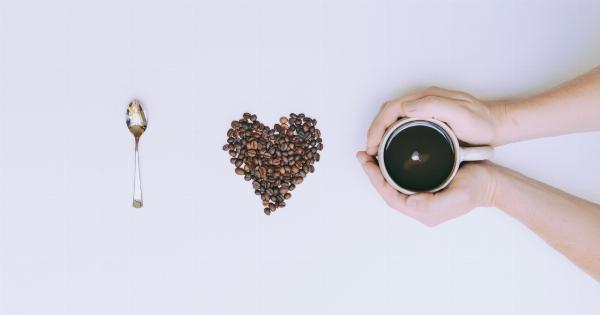Coffee is a beloved beverage that many people depend on to kickstart their day or get through long hours at work. It provides an energy boost and enhances focus, but excessive consumption can have negative effects on your health and well-being.
If you experience any of the following signs, it may be time to consider cutting back on your coffee intake:.
1. Difficulty Falling Asleep
One of the most common signs that you may be consuming too much coffee is having trouble falling asleep. Coffee contains caffeine, a stimulant that can keep you awake and disrupt your natural sleep-wake cycle.
If you find yourself tossing and turning at night or struggling to fall asleep after drinking coffee, it’s a clear indication that you need to cut back.
2. Increased Heart Rate
Caffeine stimulates your central nervous system and increases your heart rate.
While a slight increase in heart rate is normal after consuming coffee, if you notice a significant and sustained rise in your heart rate, it could be a sign that you’re consuming too much caffeine. High heart rate can lead to anxiety, palpitations, and other cardiovascular issues.
3. Frequent Urination
Caffeine is a diuretic, which means it increases urine production. If you find yourself making more trips to the bathroom than usual after consuming coffee, it may indicate that you’re overdoing it on caffeine.
Excessive urination can lead to dehydration and electrolyte imbalances if not properly managed.
4. Digestive Issues
Drinking too much coffee can irritate your digestive system, leading to acid reflux, stomachaches, and even diarrhea.
This is because coffee stimulates the production of gastric acid, which can cause discomfort and digestive distress, especially if you already have a sensitive stomach.
5. Dependency and Tolerance
If you’re finding it increasingly difficult to function without a cup of coffee in the morning or need multiple cups throughout the day to stay alert, it may be a sign of dependency.
Over time, your body can develop a tolerance to caffeine, requiring higher doses to achieve the same level of alertness. This reliance on coffee can indicate that you need to cut back.
6. Mood Swings and Anxiety
Excessive coffee consumption can contribute to mood swings, irritability, and even anxiety in some individuals. Caffeine stimulates the release of stress hormones like cortisol and adrenaline, which can lead to feelings of restlessness and unease.
If you notice a significant change in your mood or experience heightened anxiety after drinking coffee, reducing your intake may help alleviate these symptoms.
7. Sleep Disruptions and Fatigue
Paradoxically, while coffee is often associated with increased energy, consuming too much caffeine can disrupt your sleep patterns and result in chronic fatigue.
Poor quality sleep can leave you feeling groggy and less alert during the day, defeating the intended purpose of drinking coffee. Scaling back on caffeine can improve your sleep quality and overall energy levels.
8. Dehydration
Coffee has a diuretic effect, causing increased urination and potentially leading to dehydration if you don’t drink enough water to compensate. Dehydration can cause fatigue, headaches, and difficulty concentrating.
If you find yourself constantly thirsty or experiencing these symptoms, reducing your coffee intake and increasing your water consumption is essential.
9. Headaches
While caffeine can provide temporary relief for headaches, excessive consumption can actually trigger or worsen headaches in some individuals.
This is because caffeine affects blood vessels in the brain, and withdrawal from caffeine can lead to rebound headaches. If you frequently experience headaches, cutting back on coffee may be worth a try.
10. Poor Nutrient Absorption
Coffee can interfere with the absorption of certain essential nutrients, including iron and calcium. Compounds found in coffee, such as tannins and polyphenols, can bind to these minerals in your digestive system, preventing their absorption.
Over time, this can lead to deficiencies and negatively impact your overall health. Cutting back on coffee can help improve nutrient absorption and prevent deficiencies.
Conclusion
Coffee is a delicious and energizing beverage, but excessive consumption can have detrimental effects on your health and well-being.
If you experience any of the aforementioned signs, it may be time to reassess your coffee intake and consider cutting back. Remember that moderation is key, and listening to your body’s signals is essential for maintaining a healthy balance.































